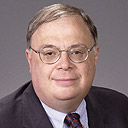Michael P. Maslanka
October 04, 2004 | Texas Lawyer
Reading Employers' MindsHow do the courts figure out whether an employer intentionally discriminated? Because our legal system is fixated on the impossible -- determining the objective truth -- the courts have developed tools of imprecise calibration to measure the heart, gauge the mind and plumb the soul.
By Michael P. Maslanka And Burton Brillhart
11 minute read
March 02, 2009 | Texas Lawyer
Good Faith and the EEOC Conciliation Process2009 is off to a bad start for the Equal Employment Opportunity Commission. On Jan. 15, the 5th U.S. Circuit Court of Appeals did a throw down to the EEOC and its conciliation process.
By Michael P. Maslanka
5 minute read
September 06, 2004 | Texas Lawyer
Claims of ConscienceClaims of conscience strengthen corporate culture. They help the bottom line. How? By empowering employees to question authority, cognitive diversity flourishes.
By Michael P. Maslanka and Theresa M. Gegen
12 minute read
December 05, 2005 | Texas Lawyer
A Few Stocking-Stuffers That Break With TraditionThe general counsel�s office deals with a broad range of work matters issues: setting an effective tone for human resources; avoiding the next wave of employment claims; helping C-levels hire the best and brightest. Here are some stocking-stuffer ideas on each.
By Michael P. Maslanka
8 minute read

August 20, 2010 | Law.com
What Can Lawyers Learn From 'Othello'?Asks Michael P. Maslanka: What lessons can "Othello" teach to lawyers? Two of the lessons focus on recognizing key facets of human behavior: manipulation and rationalization. Shakespeare's play can help lawyers recognize these tactics and guard against them in their daily practice.
By Michael P. Maslanka
7 minute read

August 11, 2008 | Corporate Counsel
The Best End-of-Summer Books for GCsAttorney Michael P. Maslanka offers some reading suggestions for general counsel to cap off the summer or gird for the fall. And for those who lament that they have no time to read books that don't produce immediate results, Maslanka says the value of a book, like that of a blind date, isn't because it's predictable but because it's random. Who knows what idea will strike you, taking you off in who knows what direction?
By Michael P. Maslanka
7 minute read
November 01, 2000 | Law.com
How to Protect Your Most Important AssetsYour employees are your most important assets, and there are three ways to protect them -- to persuade, to prevent or to punish. The world is changing: Where punishment (litigation) was once the way, now persuasion and prevention are the least expensive and most effective options. After all, you can't lose what doesn't leave.
By Michael P. Maslanka and Mark A. Shank
6 minute read

June 04, 2008 | Law.com
Lessons From a Hotel Lobby: Ask Wise Questions Before Terminating EmployeesIn 1975, Michael Maslanka dropped out of college and worked as a hotel desk clerk. Maslanka is an employment lawyer now, but he's never forgotten the lessons he's learned from his hotel boss. Here's one of the lessons that will help corporate counsel when it comes to deciding whether to impose the equivalent of capital punishment in employment: termination. It starts with what Maslanka calls "principled compassion" and the questions to ask to find if termination is warranted.
By Michael P. Maslanka
6 minute read
September 05, 2005 | Texas Lawyer
The Yin and Yang of Employment LawFor in-house lawyers at every level, accountability counts. American culture believes this with fervor. For each yang of employee entitlement there is a corresponding yin of employee responsibility. Knowing this helps general counsel explain to the C-level executives down the hall that the ecology of the workplace is in balance, soothing their anger, centering their decision-making and mollifying their perspective.
By Michael P. Maslanka
6 minute read
August 18, 2008 | Texas Lawyer
Shakespeare's Lesson for Lawyers: How to Access EmpathyWhy do students still read Shakespeare? A conspiracy of finger-wagging, we-know-what's-best-for-you high school English teachers? No. It's his empathetic powers, making people see ourselves as we are — rationalizations not permitted. The bard has much to teach lawyers.
By Michael P. Maslanka
5 minute read
Trending Stories
- 1'It's Not Going to Be Pretty': PayPal, Capital One Face Novel Class Actions Over 'Poaching' Commissions Owed Influencers
- 211th Circuit Rejects Trump's Emergency Request as DOJ Prepares to Release Special Counsel's Final Report
- 3Supreme Court Takes Up Challenge to ACA Task Force
- 4'Tragedy of Unspeakable Proportions:' Could Edison, DWP, Face Lawsuits Over LA Wildfires?
- 5Meta Pulls Plug on DEI Programs
More from ALM
- Scan In Progress: Litigators Leverage AI to Screen Prospective Jurors 1 minute read
- Legal Speak at General Counsel Conference East 2024: Match Group's Katie Dugan & Herrick's Carol Goodman 1 minute read
- Legal Speak at General Counsel Conference East 2024: Eric Wall, Executive VP, Syllo 1 minute read



